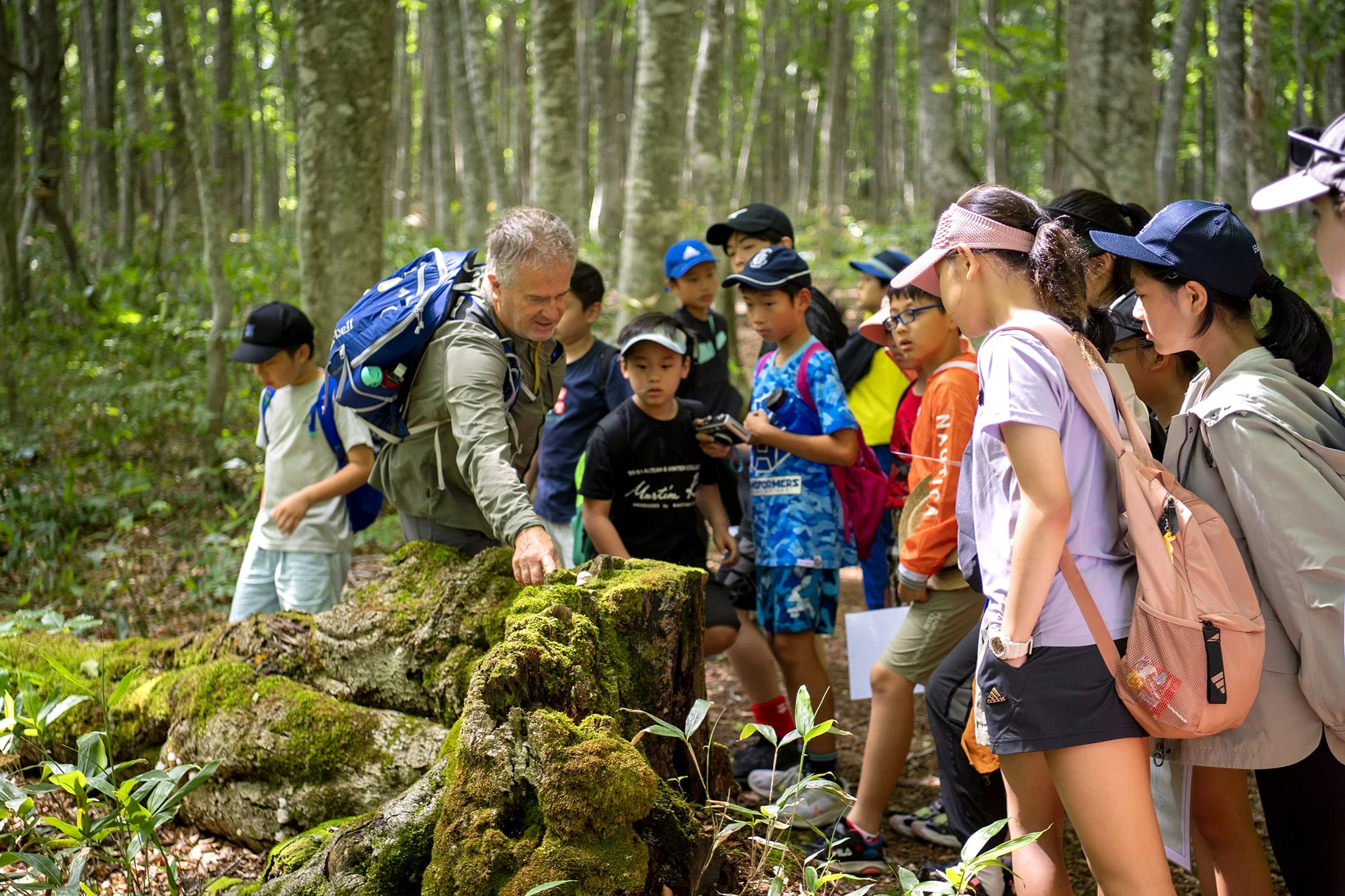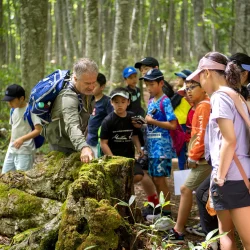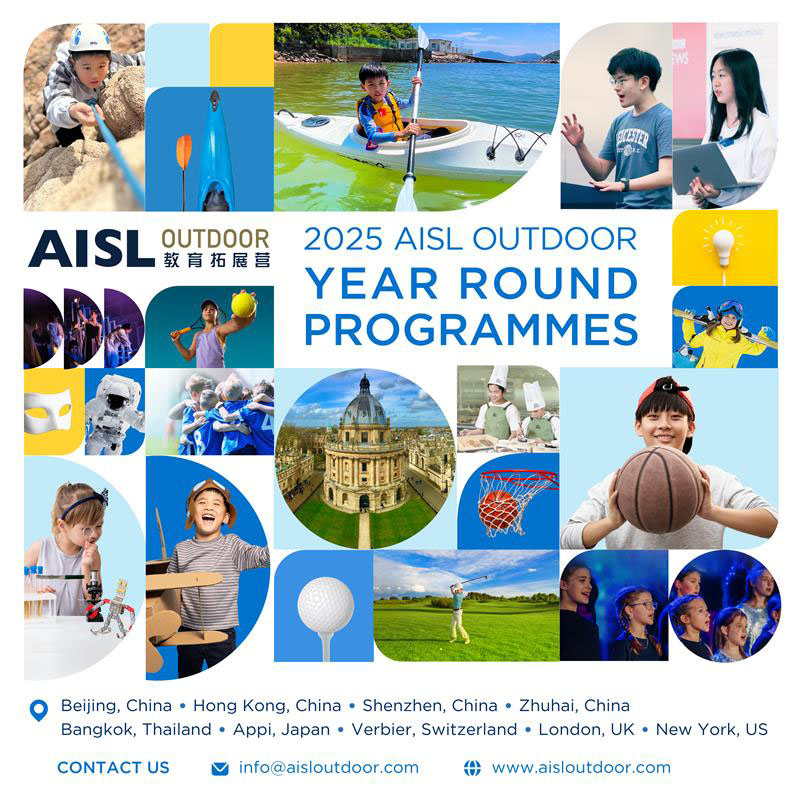As cities expand and classrooms become increasingly digitised, educators across the globe, from New York to Hong Kong, London to São Paulo, are seeking meaningful ways to reconnect students with nature. Lately, the two most well-known approaches in Urban Education are Forest School and Outdoor Learning. While both encourage learning beyond the classroom walls, these two differ significantly in terms of philosophy, structure, and outcome especially in urban settings.
Some key findings emphasise major differences between Forest School and Outdoor Learning:
- Shared Vision, Distinct Paths: At their core, both Forest School and Outdoor Learning aim to foster curiosity, resilience, and a true love for the nature. They offer students opportunities to explore, play, and learn outside the conventional classroom environments. However, the depth of engagement, duration, and educational intent behind each approach set them apart.
- Adapting to Urban Realities: In densely populated cities, access to wild spaces may be limited. However, both Forest School and Outdoor Learning can be adapted to suit the urban environments. Forest School programmes, on most occasions, partner with local councils or organisations to secure green spaces, while Outdoor Learning can be integrated into mainstream school grounds or public parks.
The key difference lies in intention. Forest School is about building relationships with nature, with peers, and with oneself. It is a reflective, child-led experience that nurtures emotional and social development. Outdoor Learning, on the other hand, is about enhancing academic content through outdoor experiences. It’s structured, goal-oriented, and often tied to classroom-based outcomes.
Forest School is, therefore, a Journey of Discovery.
Forest School is a long-term, child-led approach to learning that focuses on holistic development. Originating in Scandinavia, it has gained global recognition for its emphasis on emotional, social, and physical growth. Sessions are typically held in natural spaces, such as woodlands, parks, or even purpose-built green areas in cities, and are often led by trained Forest School practitioners.
In urban areas, Forest School may take place in community gardens, rooftop green spaces, or nearby nature reserves. The key here is consistency and connection. Children return to the same outdoor site regularly, building relationships with the environment and each other. Activities are not pre-scripted; instead, children are encouraged to take risks, solve problems, and reflect on their experiences. The result is a nurturing space where creativity, confidence, and independence flourish.
Adapting to Urban Realities
Outdoor Learning, by contrast, is often curriculum-linked and teacher-directed. It involves taking traditional subjects such as maths, science, literacy outside of the classroom, using nature as a backdrop to reinforce classroom concepts. In urban schools, this might mean conducting a science experiment in the playground or reading under a tree in a nearby park.
While Outdoor Learning is flexible and accessible, it tends to be short-term and outcome focused. Educators plan specific activities with clear learning objectives, and students are expected to follow structured tasks. It is an excellent way to make academic content more engaging, but this does not always allow for the same depth of personal growth as Forest Schools usually do.
In densely populated cities, access to nature spaces may be limited. However, both Forest School and Outdoor Learning can be adapted to suit urban environments. Forest School programmes can partner with local councils or organisations to secure green spaces, while Outdoor Learning can be integrated into school grounds or public parks.

Adapting to Urban Realities
Afterall, the key difference lies in intention. Forest School is all about building relationships with nature, with peers, and with oneself. It’s a reflective, child-led experience that usually nurtures emotional and social development. Outdoor Learning, on the other hand, is about enhancing academic content through outdoor experiences. This is structured, goal-oriented, and often tied to classroom outcomes.
As educators in urban areas seek to balance technology with nature, understanding these distinctions between Forest School and Outdoor Learning become essential. Forest School offers a transformative journey that nurtures the whole child, while Outdoor Learning provides a practical way to enrich curriculum delivery.
Ultimately, the choice depends on your educational goals, available resources, and community needs. Whether you are in a high-rise school in Tokyo or a bustling district in Hong Kong, nature has a place in learning, and it is all up to you to make space for your school settings.
To read full articles, visit here for the article published by Forest Schools and visit here to explore more insights from Forest School Association (FSA).
To learn more about the differences between Forest School and Outdoor Learning, you can refer to the article by Forest School: The Difference Between Outdoor Learning and Forest Schools, and Wings Early Years’ piece: The Difference Between Outdoor Play and Forest School.
Extracurricular activities that may be of interest:
Get a special discount by quoting code AISLMALL during CHECKOUT.
AISL Outdoor Year-Round Programmes

AISL Outdoor offers adventurous outdoor and experiential learning programmes for children. Designed to inspire curiosity and confidence, these programmes nurture skills, teamwork and personal development in supportive settings.
Cultural Immersion Programs

Learn With Dragonfly has long-established programs in multiple locations across China, including in Guangdong, Guangxi, Fujian, and Yunnan, as well as in Malaysia and Japan. Students can learn about local cultures, try their hand at traditional crafts, explore beautiful natural environments, learn how to cook using local flavours, and experience life in a community very different to their own. Programs in China can also be facilitated in Putonghua, for full language immersion.
Elite Journey – Summer Camps

Elite Journey, founded in 2015, connects China with global education through short-term programs, including camps, competitions, and exchange programs. It focuses on developing skills like communication, creativity, and global citizenship. Recognised for its excellence, it was a finalist at the PIEoneer Awards.
Immerse Education – Academic Enrichment Programmes

For students who want to excel academically from home, Immerse Education Online Research Programmes offer personal and group tutoring with an expert academic from a top international educational institution. Over and above our Classic programmes, participants also have the option to choose from a range of accredited programmes, which provide eight critical UCAS points to use towards university applications.










